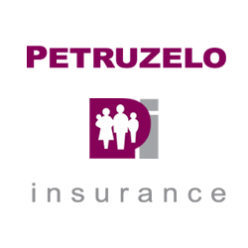
Your home is likely one of your most valuable investments, so your homeowners insurance should always reflect its current value and coverage needs. Unfortunately, many homeowners set their policy and forget it, unaware that life changes, renovations, or local risks could leave them underinsured. Here are 10 key signs it’s time to review and possibly update your homeowners insurance policy.
1. You’ve Renovated or Added Onto Your Home
If you’ve completed a major renovation, like finishing your basement or adding a new room, your home’s value has likely increased. Without updating your policy, you might not be fully covered in the event of damage or a total loss.
2. You Bought High-Value Items
Purchased a new home theater system, jewelry, fine art, or expensive furniture? Standard policies often have coverage limits for personal belongings. You may need a rider or endorsement to fully insure valuable items.
3. Your Home’s Market Value Has Increased
If your home has appreciated significantly in value due to market conditions, your current policy might fall short of covering replacement costs. It’s a good idea to check in with your insurer if local real estate prices have surged.
4. You Started a Home-Based Business
Running a business from home can come with risks not covered by a standard policy, including liability issues and lost business property. An endorsement or separate policy may be required.
5. You’ve Upgraded Your Roof, HVAC, or Plumbing
Improved infrastructure can reduce your risk profile and may even lead to lower premiums. Notify your insurer so your policy reflects the upgrades.
6. You’ve Installed a Pool, Trampoline, or Other Risky Feature
Fun additions can also increase liability. Make sure you’re properly covered for injuries or accidents that could occur on your property.
7. You’ve Made Security Improvements
Adding alarm systems, security cameras, or smart locks can reduce your home’s risk of theft or damage. These improvements could lower your premiums—if your insurer knows about them.
8. Your Family Situation Has Changed
Whether you’ve gotten married, divorced, or had a child move out, changes in household occupancy may affect your coverage needs. It’s worth a policy review.
9. You Haven’t Reviewed Your Policy in Years
Even without a major event, it’s wise to revisit your policy annually. Coverage limits, exclusions, and premiums can change—and you want to stay current.
10. Your Area’s Risk Factors Have Shifted
Have wildfires, flooding, or storms become more frequent in your area? You may need additional coverage for natural disasters not included in your standard policy.
Your home and lifestyle don’t stay the same—your insurance shouldn’t either. If any of these signs sound familiar, contact your insurance provider or a trusted local agent to ensure your policy still offers the protection you need. Peace of mind starts with the right coverage.
